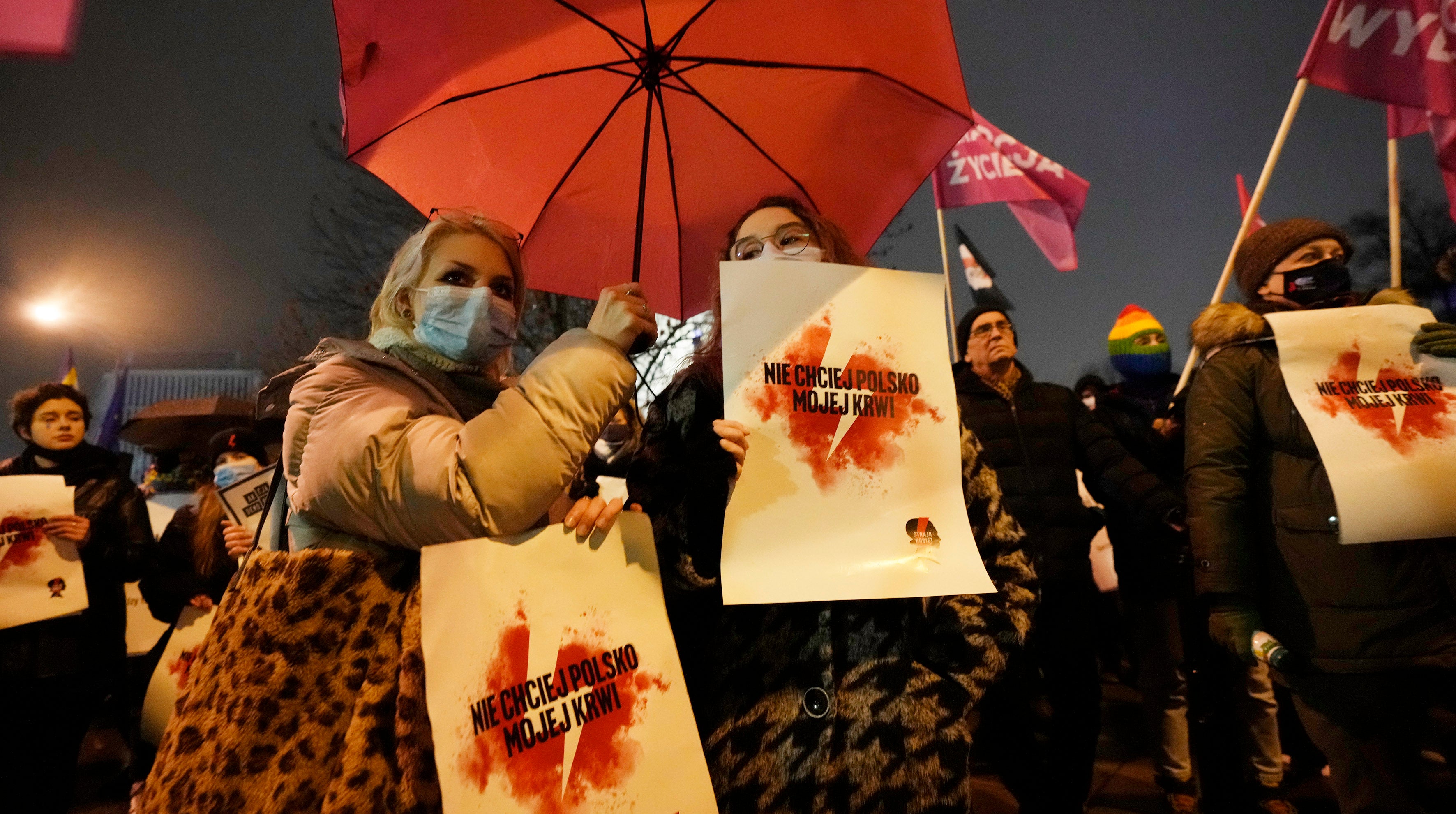‘Leaving women to die’: Sixfold increase in women seeking help to access abortions in Poland after near-total ban
‘People in Poland who have been abandoned by their government,’ says director of Abortion Support Network

Your support helps us to tell the story
From reproductive rights to climate change to Big Tech, The Independent is on the ground when the story is developing. Whether it's investigating the financials of Elon Musk's pro-Trump PAC or producing our latest documentary, 'The A Word', which shines a light on the American women fighting for reproductive rights, we know how important it is to parse out the facts from the messaging.
At such a critical moment in US history, we need reporters on the ground. Your donation allows us to keep sending journalists to speak to both sides of the story.
The Independent is trusted by Americans across the entire political spectrum. And unlike many other quality news outlets, we choose not to lock Americans out of our reporting and analysis with paywalls. We believe quality journalism should be available to everyone, paid for by those who can afford it.
Your support makes all the difference.Six times more women sought help from campaigners to access abortions in Poland in the wake of the country’s near-total abortion ban, new figures show.
Abortion Without Borders, a grassroots feminist network, revealed they helped almost 32,000 Polish women seeking abortions in the last year, while the service had 5,237 people contact them to help access abortions the year before.
Poland further tightened the nation’s already highly restrictive abortion laws in October last year - triggering the largest protests in the country since the collapse of communism.
Under the new laws, it is now illegal to have an abortion in cases where there are foetal defects. Although terminating a pregnancy has long been illegal in Poland, prior to the change foetal abnormalities were one of the exceptions where an abortion was permitted, along with cases of rape, incest, or where the mother’s life was at risk.
Almost 1,200 of the women Abortion Without Borders helped in the last year were forced to make the trip to a clinic or hospital in another country. This figure is much higher than the 262 women they helped travel abroad for an abortion the year before.
The support network, which was set up in December 2019, gives money to those who require help to access an abortion, as well as also supporting anyone who has to go abroad to have a pregnancy termination. But campaigners note the majority of people who want a pregnancy termination can safely take pills from their own home.
At least two women died this year after they were blocked from having an abortion even though the pregnancy was placing their life at risk, Abortion Support Network said.
Abortions and miscarriages would have been punished with criminal charges under new legislation proposed in Poland this month, which was rejected in parliament. But the country’s Ministry of Health appears to be planning a pregnancy register that “would record pregnancies and other sensitive medical information in a central database”, campaigners said.
In October last year, the Polish government ruled some 98 per cent of the 1,000 to 2,000 legal abortions occurring in the nation were “unconstitutional”.
Mara Clarke, director of Abortion Support Network, said: “Right now, Poland is leaving women to die. Abortion Without Borders is a lifeline for the people in Poland who have been abandoned by their government.
“Abortion Without Borders is here to help anyone who contacts us – but we are enraged that we are needed. We hope that governments and civil society will do their job and provide free, safe, legal abortion services for anyone who needs or wants them, as a matter of urgency.”
Before the government changed the rules on abortions, the majority of the tiny number of legal abortions which occurred in the predominantly Catholic nation were cases of foetal defects.
Speaking to The Independent about Poland’s near-total abortion ban at the beginning of the year, Antonina Lewandowska, an abortion rights activist based in Warsaw, said: “It amounts to torture in the middle of Europe. This is about forcing women to give birth to a foetus that won’t survive or will be born with a severe disability for the rest of its life. It may not have several body parts - children are sometimes born without eye sockets. It is a nightmare.”
Ms Lewandowska, who works for the Federation of Women and Family Planning, a Polish NGO which works with the United Nations and the European parliament, said in some cases parents will be raising a child who cannot speak or move and has no brain consciousness, as she warned the government had “sentenced women” to torture.


Join our commenting forum
Join thought-provoking conversations, follow other Independent readers and see their replies
Comments